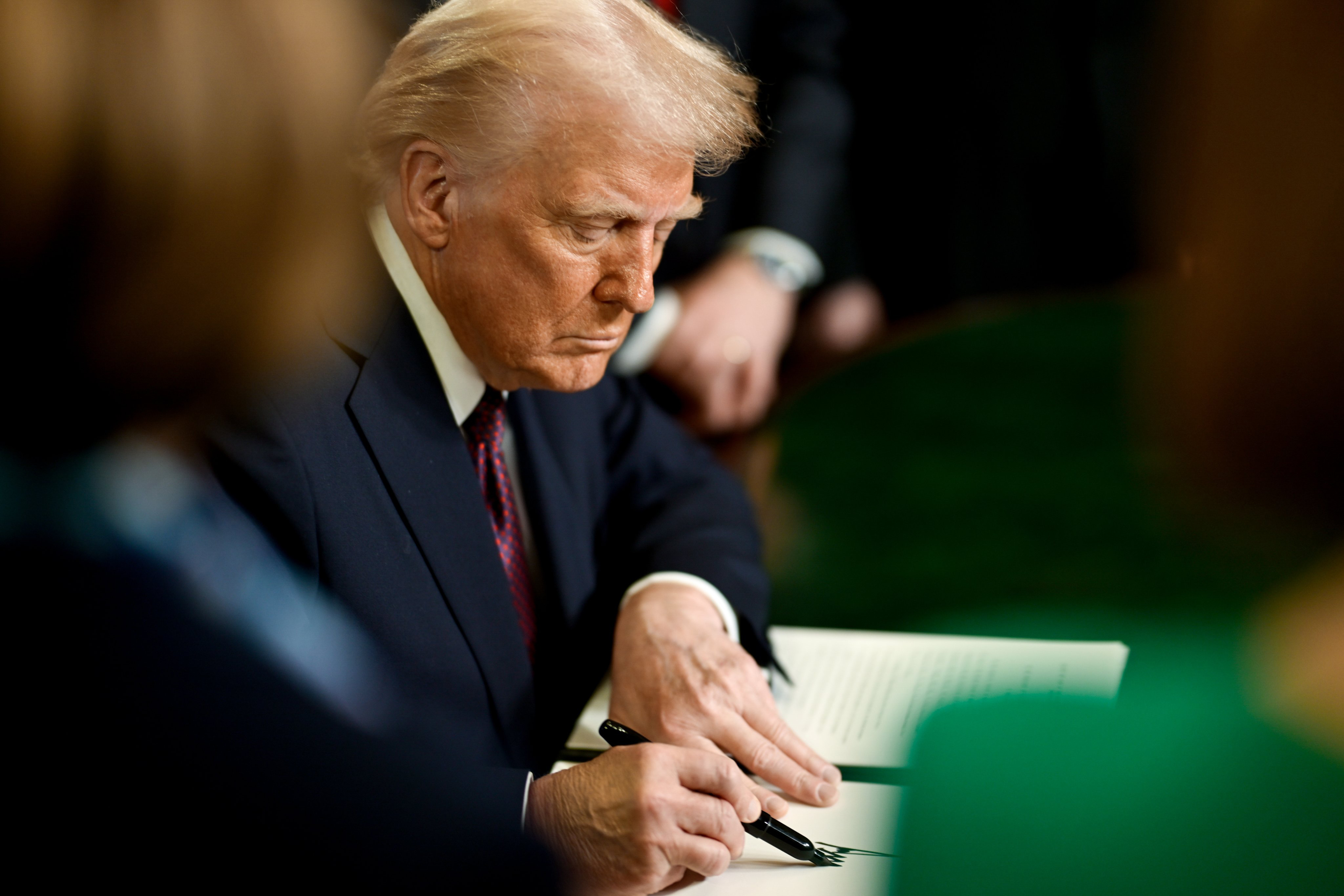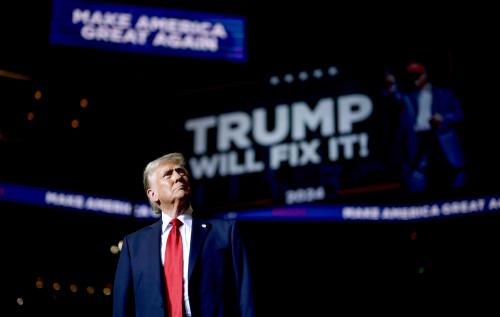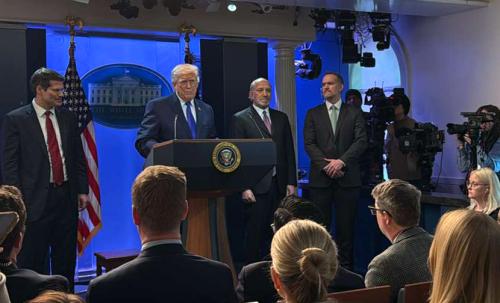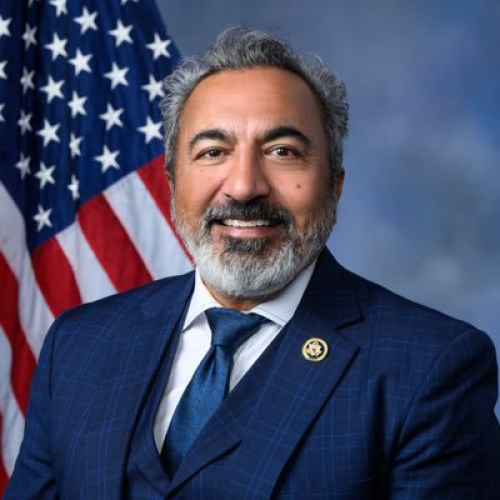By Prashant Shah
Donald Trump’s second term as President of the United States has been a turbulent chapter in modern geopolitical history. Marked by deepening ideological divides and an aggressive, unilateral foreign policy agenda, Trump’s second administration has struggled to assert effective global leadership. Despite campaigning on promises of strength, peace, and economic renewal, his presidency has become a case study in diplomatic failure, economic volatility, and social division. His inability to navigate complex international crises—particularly the wars in Ukraine and Gaza—alongside domestic controversies involving key figures like Elon Musk, and a return to divisive trade and immigration policies, have not only weakened America's moral standing but also exacerbated global instability.
At the center of Trump’s foreign policy failure lies his ineffective handling of the Russia-Ukraine war. During his second term, Trump once again failed to condemn Vladimir Putin’s military aggression in unequivocal terms. Despite mounting global pressure and an expanding humanitarian crisis, Trump’s administration remained largely passive, offering no viable peace plan or strategic pressure on Moscow. His previous affinity for Putin—evident since his first term—carried into his second, rendering him ill-equipped to function as a neutral mediator. In meetings with President Volodymyr Zelensky, Trump attempted to position himself as a broker of peace, yet his efforts lacked substance and sincerity. Instead of supporting a robust international coalition to deter further Russian aggression, Trump focused on transactional diplomacy, conditioning support on political concessions, echoing the controversial tactics of his first term.
Equally troubling was Trump’s failure to influence the Israeli government under Prime Minister Benjamin Netanyahu amid escalating violence in Gaza and the West Bank. While previous U.S. presidents sought to balance American support for Israel with advocacy for Palestinian rights, Trump’s unwavering alliance with Netanyahu left little room for meaningful diplomacy. His recognition of Jerusalem as Israel’s capital and endorsement of settlement expansions alienated Palestinians and international peace partners alike. As conflict reignited, Trump failed to bring the parties to the negotiating table. Despite his claims of fostering regional stability through deals like the Abraham Accords, his approach proved short-sighted. His unwillingness to criticize Netanyahu’s military actions or address Palestinian grievances undermined any remaining credibility the U.S. had as a peace mediator in the Middle East. Rather than preventing war, Trump’s policies accelerated polarization and escalated violence.
Beyond diplomacy and war, Trump’s second term was also marred by the controversial departure of Elon Musk from key advisory and cooperative roles with the government. Elon Musk, once a prominent supporter and occasional adviser to President Donald Trump, has publicly broken with the administration in a dramatic fashion. While Musk initially aligned with Trump on certain economic goals, he increasingly distanced himself over fundamental disagreements on climate change, artificial intelligence policy, and immigration reform. This ideological divide grew over time, with Musk stepping back from his role leading the Department of Government Efficiency (DOGE), signaling deeper tensions. His recent public condemnation of Trump’s flagship reconciliation package—a bill Musk labeled a “disgusting abomination”—marked a turning point. Posting on his platform X, Musk slammed the legislation for being bloated with unnecessary spending and contributing to an unsustainable $2.5 trillion deficit. “Shame on those who voted for it,” he wrote, in an unusually forceful critique. The move shocked political observers and underscored growing disillusionment among tech leaders toward the Trump administration’s direction. While some speculate that Musk’s departure stemmed from ideological rifts, others suggest political retaliation may have played a role. Regardless of motive, Musk’s withdrawal and fiery denunciation represent a symbolic rupture between Silicon Valley and Washington, highlighting the fraying ties between innovation leaders and government at a pivotal moment for technology and public policy. Musk also said “without me, Trump would have lost the election.”
The unlikely alliance between President Trump and Elon Musk has deteriorated in remarkably swift and public fashion, as the two men continue to snipe at each other from their own social media platforms. Trump even threatens to cut Musk’s government contracts as feud escalates.
The global economic impact of Trump’s second-term policies cannot be overstated. Building on the protectionist philosophy that defined his first term, Trump revived his use of tariffs as a foreign policy weapon. Dubbed by critics as "tariff blackmail," this strategy was aimed at compelling trading partners to bend to U.S. interests through economic coercion. However, the results were overwhelmingly negative. Renewed tariffs on Chinese goods reignited trade tensions, disrupted global supply chains, and increased prices for American consumers. Tariff threats against European allies further strained transatlantic relations, undermining trust and cooperation in areas ranging from defense to climate action. Developing economies, already reeling from previous trade wars and global inflation, were disproportionately affected as global demand wavered and investment flows shrank.
Rather than revitalizing American manufacturing or correcting trade imbalances, Trump’s tariff-centric strategy contributed to economic uncertainty and instability. His withdrawal from multilateral agreements and reduction in U.S. commitments to global trade institutions further isolated the country from international economic frameworks. The weakening of alliances such as the World Trade Organization and the Comprehensive and Progressive Agreement for Trans-Pacific Partnership (CPTPP) opened the door for rival powers like China to expand their influence in emerging markets. The net effect of Trump’s economic nationalism was a less predictable global economy, with lower investment confidence and a diminished role for the United States in shaping the rules of international commerce.
Compounding these challenges was Trump’s hardline immigration policy, a continuation and intensification of his first-term agenda. He reinstated and expanded measures that sharply restricted both legal and undocumented immigration, including stricter asylum rules, travel bans targeting Muslim-majority countries, and a further reduction in refugee admissions. While the administration framed these actions as necessary for national security and economic stability, they were widely condemned by human rights groups, religious organizations, and foreign governments. One of the most controversial aspects of his policy was the continued enforcement of family separation at the U.S.-Mexico border, a tactic seen by many as inhumane and punitive.
Internationally, these policies damaged America’s reputation as a beacon of hope and freedom. They also created diplomatic friction with neighboring countries, particularly Mexico and Central American nations, whose leaders criticized the harsh treatment of their citizens and the lack of collaboration on migration issues. Domestically, the policies fueled division, as immigrant communities faced increased surveillance, deportations, and legal uncertainty. The economic consequences were also significant; sectors reliant on immigrant labor, such as agriculture, healthcare, and technology, experienced workforce shortages and rising costs.
More broadly, Trump's immigration policy contributed to a global narrative of isolationism. At a time when countries needed coordinated responses to global challenges—such as climate change, pandemics, and mass migration—Trump's America turned inward. His refusal to lead on humanitarian issues, including the refugee crisis resulting from wars and climate disasters, left a void that was filled by less democratic actors, who used humanitarian aid as a geopolitical tool.
In the final analysis, Donald Trump’s second term in office has left behind a fractured global landscape and a diminished American presence on the world stage. His failures in diplomacy, whether in preventing war or fostering peace, underscored a lack of strategic coherence and moral authority. The departure of prominent figures like Elon Musk revealed cracks within the American elite and deepened public skepticism of government-business cooperation. Economically, his reliance on tariffs and trade threats destabilized global markets and weakened alliances. On immigration, his administration’s policies prioritized ideology over humanity, sowing discord at home and abroad.
What remains clear is that leadership in the modern world requires more than forceful rhetoric and symbolic gestures. It demands empathy, strategy, and collaboration—qualities that were largely absent from Trump’s second term. As the global community confronts overlapping crises of war, climate, and inequality, the lessons of Trump’s presidency serve as a cautionary tale about the cost of isolationism and the dangers of abandoning diplomatic norms. The international order, already fragile, cannot withstand another chapter of American disengagement and unilateralism without further descent into disorder and conflict.












